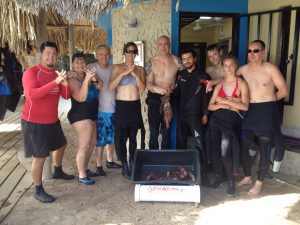 I have had the good fortune of being able to spend the better part of the last 2 years traveling the Caribbean working with Natural Resources Managers, scuba diving centers, local divers and local seafood restaurants regarding the development of lionfish education programs, promotion of underwater hunters and the commercialization of lionfish as a source of sustainable, eco-friendly seafood in a the battle to mitigate the non-native lionfish invasion.
I have had the good fortune of being able to spend the better part of the last 2 years traveling the Caribbean working with Natural Resources Managers, scuba diving centers, local divers and local seafood restaurants regarding the development of lionfish education programs, promotion of underwater hunters and the commercialization of lionfish as a source of sustainable, eco-friendly seafood in a the battle to mitigate the non-native lionfish invasion.
It turns out that lionfish can be good for all kinds of businesses and there’s nothing like rallying around a profit motive to “get shit done,” a popular corporate phrase these days.
What has consistently bothered me is that, while several island nations have responded extremely well to the very serious threat that the lionfish present, many nations are either turning a blind eye to the lionfish invasion or have failed to even remove the biggest barriers to lionfish population control: the overly-broad laws that prevent scuba divers from spearfishing or make illegal even the possession of hawaiian slings and pole spears! The Bahamas completely prohibits spearfishing while scuba diving but does allow the taking of fish while free-diving (snorkeling) – this makes little sense whatsoever, since lionfish are found at depths well beyond most free-divers’ capabilities, yet that government is not moved to change the law at all.
 Other areas, such Bonaire, Bermuda, the Special Protected Areas of the Florida Keys, the Bay Islands of Honduras and several others, have instituted a licensing or permitting program that effectively eliminates diving tourists from fully participating in organized or guided lionfish hunts. As a veteran scuba instructor, I am 110% FOR educating divers who want to hunt lionfish due to the potential hazards of handling them and the damage that could be caused to the environment from careless divers, but the permitting process is seen as expensive and burdensome by vacationers. I come across literally dozens of divers every single week in my own work that have expressed this frustration and I think about the missed opportunity to be doing everything possible to manage this crisis on all fronts. PADI (Professional Association of Diving Instructors), arguably the one organization that could have had the muscle to pull together all of the various governments, create a comprehensive training program and push that training out through its extensive network of dive instructors and divemasters, has done an “about face” on sanctioning specialty certification courses that involve killing lionfish underwater (somehow netting them and bringing them to the surface is OK).
Other areas, such Bonaire, Bermuda, the Special Protected Areas of the Florida Keys, the Bay Islands of Honduras and several others, have instituted a licensing or permitting program that effectively eliminates diving tourists from fully participating in organized or guided lionfish hunts. As a veteran scuba instructor, I am 110% FOR educating divers who want to hunt lionfish due to the potential hazards of handling them and the damage that could be caused to the environment from careless divers, but the permitting process is seen as expensive and burdensome by vacationers. I come across literally dozens of divers every single week in my own work that have expressed this frustration and I think about the missed opportunity to be doing everything possible to manage this crisis on all fronts. PADI (Professional Association of Diving Instructors), arguably the one organization that could have had the muscle to pull together all of the various governments, create a comprehensive training program and push that training out through its extensive network of dive instructors and divemasters, has done an “about face” on sanctioning specialty certification courses that involve killing lionfish underwater (somehow netting them and bringing them to the surface is OK).
Our main challenge in the lionfish invasion is a severe lack of cohesive leadership.
Lionfish eggs are dispersed by ocean currents. Those nations and islands that are aggressively engaged in a fight to save their underwater resources are being adversely affected by bad neighbors upstream of them. To date, I am unaware of a single symposium attended by representatives of every nation and states being affected by non-native lionfish to wrap their collective heads around the problem and commit that, together, they should be facing this invasion head-on and implement intelligent processes and regulation.
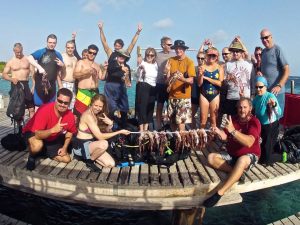 Science, and experience, has proven time and again, that right now there is no more effective tool available to reduce the lionfish population than to send divers into the water after them. Traps, nets, hook & line fishing, “training” predators, submarines, etc., have all been fruitless thus far. Areas in which the lionfish invasion is being kept at bay are seeing massive rebounds of the fish that are both commercially important to the local people as well as those creatures that are crucial to the health of the reef.
Science, and experience, has proven time and again, that right now there is no more effective tool available to reduce the lionfish population than to send divers into the water after them. Traps, nets, hook & line fishing, “training” predators, submarines, etc., have all been fruitless thus far. Areas in which the lionfish invasion is being kept at bay are seeing massive rebounds of the fish that are both commercially important to the local people as well as those creatures that are crucial to the health of the reef.
To sideline divers is completely irresponsible at best.
If you live in an area affected by invasive lionfish, have you had the opportunity to hunt them or eat them? If you are a scuba diver, would you hunt lionfish on your next diving vacation? Tell us in the comments below!
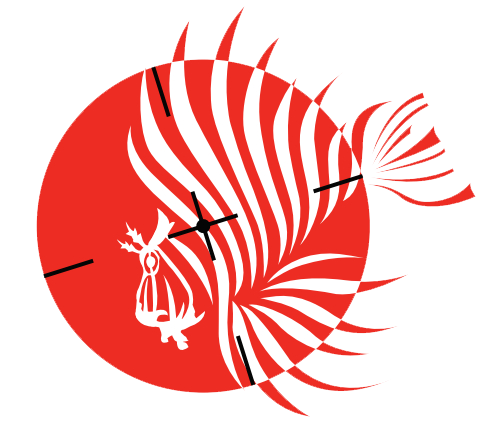
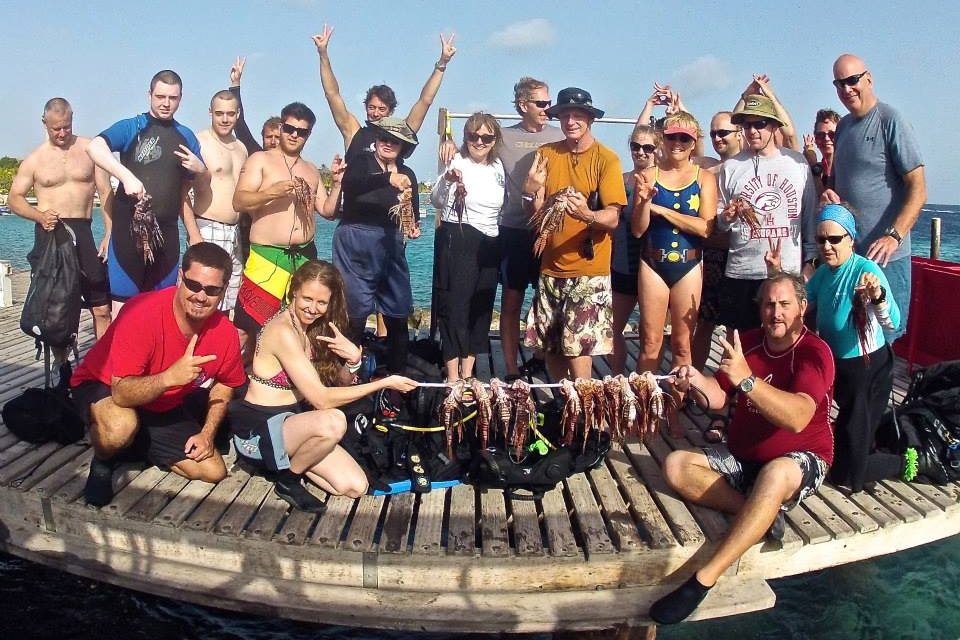
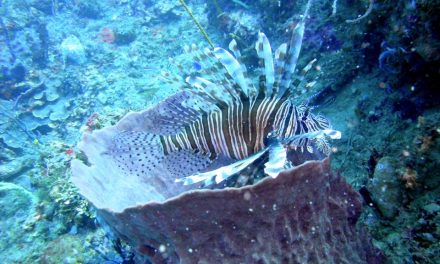

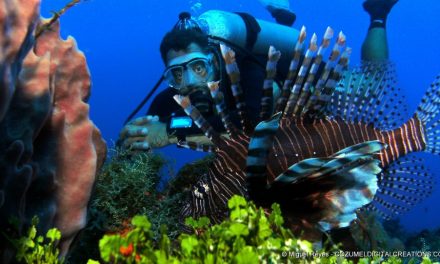

The threat that the Pterois invasion represents to the marine environment and to island and coastal economies has a direct effect in the fiscal health of governments in all areas impacted by these small but voracious predators. Whether governments become a factor in managing this problem or they choose to ignore reality, the damage will be felt.
In Puerto Rico, we’re somewhat fortunate because there is government awareness of the threat, and policies have been implemented that allow lionfish hunting even in protected areas . No zone is off-limits to hunt Pterois.
The government agency concerned with environmental matters, DRNA (Departamento de Recursos Naturales y Ambientales), provides kill and catch permits at no cost other than the time it takes to complete and submit the forms. In addition, Dr.Craig Lilyestrom and Kelvin Serrano, from the Marine Resources division of DRNA, provide support in the form of guidance, technical information, and even some supplies such as special “diver below” flags with a lionfish design that identify permit-holders.
As a result, while we suffer from the effect of the Pterois invasion like most other areas of the Caribbean and Western Atlantic, you can snorkel and dive in many reef areas without seeing a lionfish.
There’s still a lot of work pending to effectively manage the lionfish threat in Puerto Rico, but the small step of allowing easy access to permits has been a big push to help involve the public in the effort to fight the invasion. Hopefully other governments in the region will discover this simple approach and become a factor in managing the Pterois threat.
I have to say I am amazed at the energy so many divers have put into helping control the Lionfish invasion.
Our Marine park officials started allowing small spears in the marine park shortly after they arrived.
Having seen them flourish in Cozumel waters in the first 2 years to now, being mostly under control, I would have to give most of the credit to one thing.
I believe that because Cozumel was a protected marine park with a vibrant and healthy ecosystem before the invasion began, we have been most successful in holding the Lionfish at bay.
Once the local predators (mutton snapper, grouper, Moray eels and nurse sharks) were given a taste of speared lionfish they have since started hunting them on their own. In fact I have noticed (although not studied) a dramatic increase in mutton snapper population here. I believe that is a direct affect of them taking advantage of a new lionfish food source.
None of this is scientific and perhaps our marine park would have better data but the strength of our ecosystem before the lionfish got here is surely a major factor in helping them find balance quickly on Cozumel reefs.
I don’t think they will ever be eradicated but, if in balance; they do honestly add one more interesting and beautiful fish to our already wonderful reefs!
I have been diving the reefs of Cozumel for over 30 years and now have been living here for almost 3 years. About 4 or 5 years ago we started seeing more and more lion fish and they rapidly increased in population. After a short period of time, the local officials allowed the use of slings to all divers in the Natl.Park to take and kill them. There are even organized competitions from time to time for the taking of them. I have seen a dramatic reduction over the past 2 years, although they seem to be living at deeper depths are more wary of divers with slings. I too have fed them to Morays, groupers, and even large lobsters, but taking them home and eating them is a tasty treat as well. I have yet to witness them being eaten un speared by any of the indigenous fishes here, but maybe that is now happening. Are we messing with Mother Nature? Possibly, but from other reports I have read from areas like the Florida Keys where as much as 80% of the fish population has been devastated, I believe we are doing the right thing.
Here in Dominica we have been working with our fisheries division from before we even had Lionfish in our waters. We have been hunting Lionfish ever since, with their permission, on scuba with pole spears. We have good control over our dive sites. I find interesting some of the comments above. We also have had a marine reserve for a longtime, we also have very healthy reefs but we are no seeing any predatory actions on live healthy lionfish. I was informed by the scientific community that there is no evidence that this is happening, I would love to see video if it is.
While I believe that here in Dominica we have followed ALL best practices we do have a lot of lionfish AWAY from the dives sites where we do not dive.
My personal theory for this, and this is based in logic not data, is that the two French Islands to the North and South of us do not allow hunting of any coastal fish within 900m of shore. This, as we all know, is the lionfish habitat. So I can only imagine how dense their populations are.
We absolutely must handle this as a region. Anyone who has lived in this region can tell you that this is not likely. This leaves the invasion to be handled by the dive shops, local fishermen and scientific community. I am encouraged by the ongoing conversation behind the scenes of best practices, methods and techiniques.
President: Dominica Watersports Association
Scott
great article and totally agree with you that we need to have some sort of proactive approach taken by the regulatory authorities (am speaking as a diver and operator of a Dive shop in Bermuda ) many of our visitors are keen to understand the lionfish issue and we would benefit from the ability to be able to offer “lionfish safaris” (am open to suggestions on a better name!!) – i do believe actually that PADI does now offer some form of a Lionfish spearing course i plan on emailing our Government reps this article – keep up the good work
I am chomping at the bit to hunt lion fish. The fact that pole spears are forbidden because they may damage the reef is valid but at the same time, do they do as much damage as the lion fish that’s left unchecked? I would love to become a trainer to help as many as possible acquire the cert. They need to get permits here in Florida.there are just too many regulations that would allow the average diver to inadvertently cross the legal line while trying to do good.